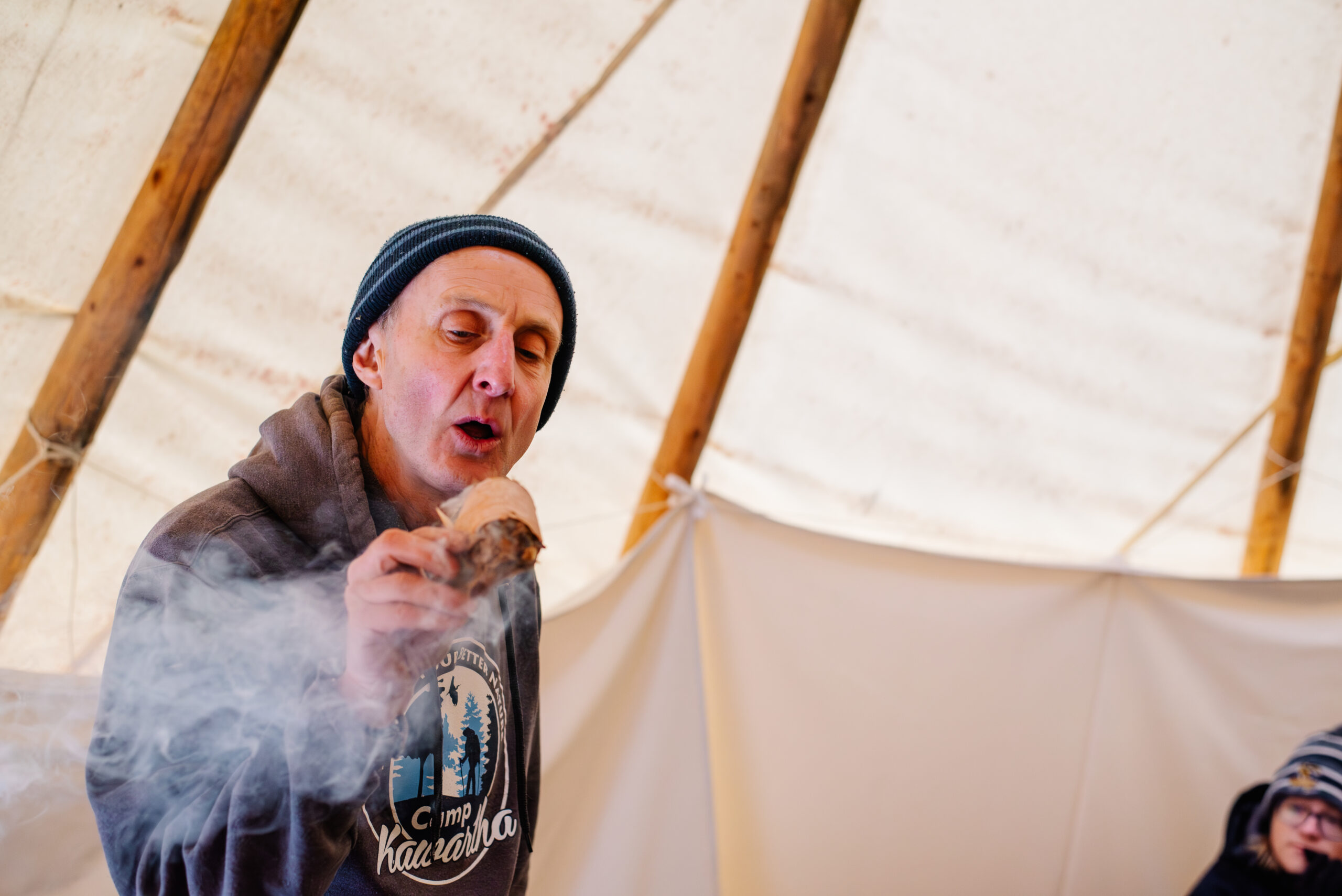Eco Mentorship Certificate

2 FREE Eco-Mentor Workshop dates available thanks to TD Friends of the Environment
Step outside the classroom and into inspiration! Join Jacob Rodenburg—author and award-winning environmental educator along with his staff—for a one-of-a-kind day of hands-on outdoor learning at the beautiful, Camp Kawartha Environment Centre (one of Canada’s most sustainable buildings).
May 17th, 2025 from 10am-3pm: Register here
August 16th, 2025 from 10am-3pm: Register here

Trent University Eco-Mentor Certificate Program
The Eco-Mentorship Certificate Program is an innovative opportunity offered to teacher candidates. A collaboration between the Camp Kawartha Environment Centre and the School of Education at Trent University, it draws on expertise from the local environmental education community.
Upon completion, this unique program will provide you with a certificate attesting to your interest, skills and ability in indigenous and environmental education. Becoming an Eco-Mentor tells principals that you are committed to bringing environmental education to your students and the school community.
Ask yourself
- Do you want to learn how to integrate outdoor activities and nearby green spaces into your teaching practice, safely and with purpose?
- Would you like to develop strategies for integrating environmental education across the curriculum in positive and hopeful ways?
- Do you have skills and experiences in environmental education that you would like to share with other teacher candidates and environmental educators?
- Would you like to learn more about the Indigenous roots of environmental education?
then this exciting new Eco-Mentorship Certificate Program will be of great interest to you!
Our Eco-Mentorship Certificate Program offers you the opportunity to learn from your peers alongside highly experienced indigenous and environmental educators:
- Jacob Rodenburg, Executive Director of the Camp Kawartha and his staff
- In collaboration with SOE faculty: Dr. Paul Elliott, Dr. Nicole Bell, and Dr. Blair Niblett
Most workshops will take place at the Camp Kawartha Environment Centre (one of Canada’s most sustainable buildings) located on Pioneer Road, across from Gzowski College.
You can earn this Eco-Mentorship Certificate by taking part in a series of four Saturday workshops and incorporating aspects of what you have learned into one of your final practicum placements. There are no additional assignments or homework for this program. The four introductory workshop topics include:
- Drawing on Nearby Nature: Exploring Biodiversity
- Removing Barriers to Environmental Education
- Environmental Education – Inspiring Hope
- Indigenous and Environmental Education Across the Curriculum
Workshop Descriptions
Workshop One: Drawing On Nearby Nature: Exploring Biodiversity
Environmental sensitivity research (Tanner 1980, Palmer 1988) has revealed that one of the most important ways to help students develop a sense of advocacy for the environment is to provide them with rich encounters with the natural world during childhood by exploring biodiversity. In this workshop, we’ll review a variety of hands-on strategies and techniques for using nearby nature areas as a venue for environmental education. We’ll present a cross section of environmental games, activities and resources relating to science, social studies, physical education and the arts. The intent of this workshop is to inspire students to adopt an ethic of care and stewardship for their local environment.
Workshop Two: Removing Barriers to Environmental Education
Educators are often full of good intentions. Yet the idea of teaching environmental education as well as all those other subject areas is a bit overwhelming for many teachers. In this workshop, we’ll help to reduce/remove some of the barriers to delivering effective environmental education. We’ll also discuss how to obtain administrative support for outdoor excursions, where to access funding and what local resources may be available to help you deliver environmental education in your own community. We’ll be bringing in several local experts to assist with this workshop.
Workshop Three: Environmental Education – Inspiring Hope
By its very nature teaching environmental education can be both frightening and daunting to children. How can we teach students in ways that are both age appropriate and inspire hope for action? We need to, as David Sobel (an eminent environmental educator and writer), suggests find ways to go beyond ‘ecophobia’ or the fear of facing an uncertain future and impending environmental disaster. In this workshop, we’ll examine a variety of different ways in which we can most productively teach environmental issues to children of all ages.
Workshop Four: Indigenous and Environmental Education Across the Curriculum
With a jam-packed curriculum, it is not surprising that teachers often say: we’d love to do environmental education but I just don’t have the time. We’ll explore how an integrated approach to environmental learning can effectively cover off a number of expectations in a variety of subject areas. We want teachers to recognize that an Indigenous and environmental education perspective and related activities does not mean crowding out other subject learning. Indigenous teachings will be offered and we will explore the benefits of setting up eco-activities (clubs, themed days, blogs, competitions). We’ll also showcase successful models of classroom practice that are experiential in nature and bring together meaningful learning in a variety of domains (especially integrating arts and science).
How to Enroll
If you are interested in this exciting new program, please go to MYTRENT learningSystem/Blackboard – intranet and choose between morning or afternoon sessions. Then upload a short explanation (max 250 words) about why you want to be part of the eco-mentorship program and how this will help you as a future teacher.
Enrollment is limited! Spaces in the program will be assigned on a first come, first serve basis.
Fleming College Early Childhood Eco-Mentor Certificate Program
Camp Kawartha in partnership with Fleming College offers a unique eco mentorship program for early childhood educators to provide them with the skills, strategies, knowledge to connect children with nature and their environment.
For more information, visit Fleming’s Early Childhood Education
